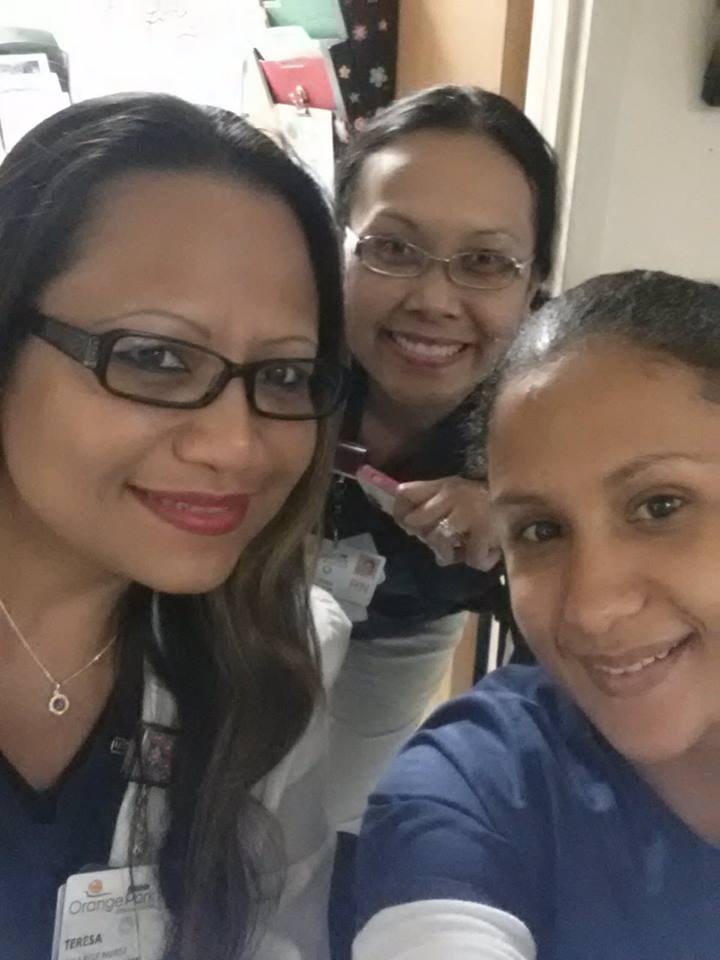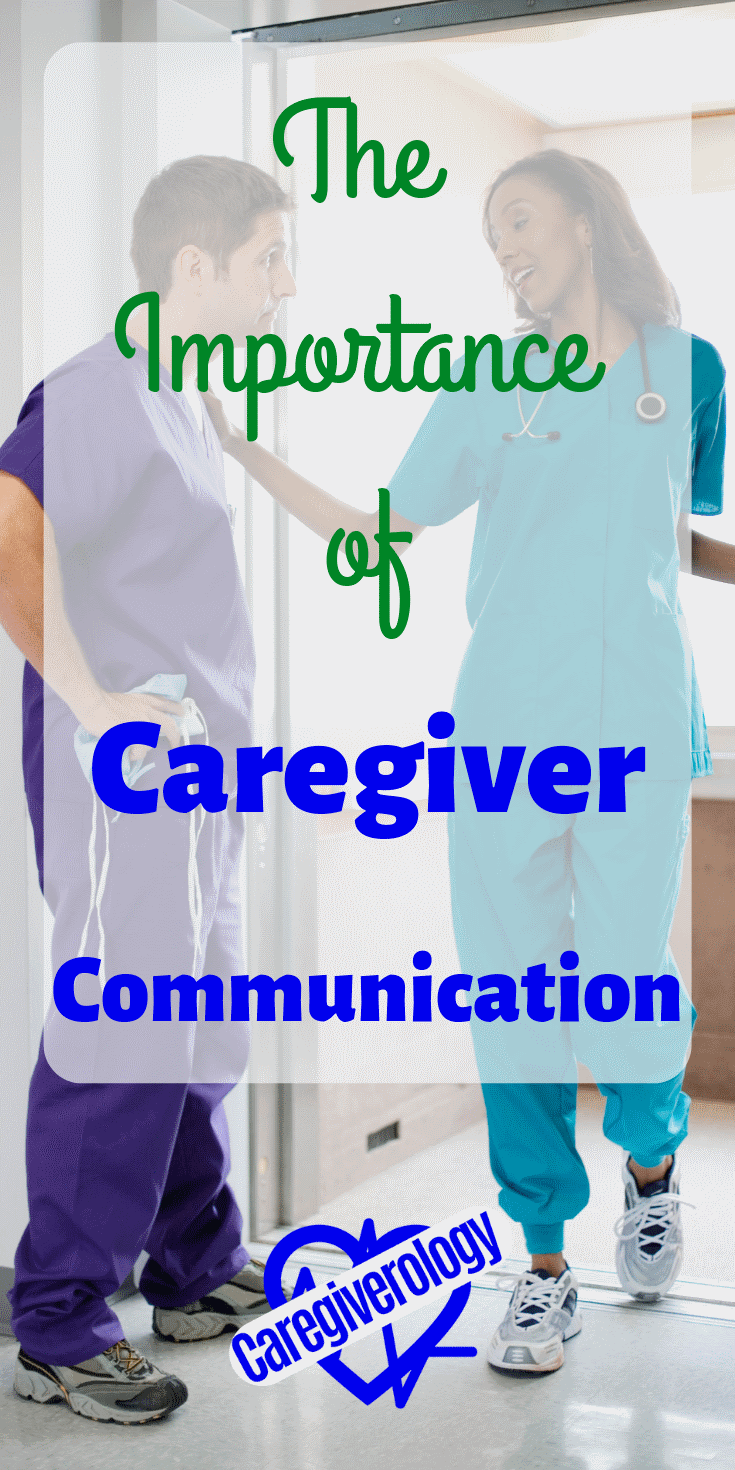The Importance of Caregiver Communication
As caregivers, we should all have very good caregiver communication between each other, as well as communication between our patients. AIDET helps us achieve this with our patients and SBAR with healthcare workers specifically. Without it, our care can turn out to be not so caring.
The concept of communicating with other people you work with, or other people who are there to help you, and your patients sounds really simple. In a way, it really is, but not all caregivers do this effectively. They may be doing everything they are supposed to do but in the end, other caregivers or, even worse, their patients suffer.
Teamwork Example Quietness Be willing

Teamwork Is Vital
At the hospital where I am employed, Each of my patients are assigned a certified nursing assistant (CNA), which is what I was previously, and a registered nurse (RN), which is what I am currently, to care for them. There are usually a few more nurses and at least one more assistant as well as a charge nurse on each unit of approximately 20 patients.
Between all of us, there are times when everyone on the unit will help the same patient. This may sound ridiculous but it really is necessary at times. If one of us is busy with one patient and another patient assigned to that person needs assistance, someone else steps in. This is how every facility should work.
We all have great caregiver communication between each other in order to help every patient as soon as possible. Like everybody else, patients do not like to wait. When we apply caregiver communication in the workplace, their waiting time is minimized. If we all just helped our patients and our patients alone, we would have some very upset patients.
An Example Scenario
There are times when I am in the same room for 30 minutes or longer. If another patient needed help during that time and there was no way for me to leave the patient I'm already with, the only solution would be to have someone else go in the room. No patient should have to wait that long to get assistance.
There are a few different ways to have good caregiver communication when a similar scenario happens. If you are in the middle of performing one of your duties such as giving a bed bath and you get paged to go to another room, if you have a phone, you can call another caregiver and tell them you are assisting another patient and see if they can help them. You could also use the patient's call light directly if you don't have a phone.
If they are busy as well, call someone else. The caregiver you call doesn't necessarily have to be assigned to that patient. Since I am a nursing assistant, I will usually call the other nursing assistant on the unit to see if they can help. If they are tied up as well, I will call the patient's nurse. If the nurse is busy too, I will try to call another nurse. If it is something simple such as the patient needing a blanket or glass of water, I can ask the secretary for help.
If literally everybody is busy and nobody else can assist the other patient, which should hardly ever happen, your last resort would be to cover the patient you are giving a bed bath to so they don't get cold and rush into the other patient's room. Inform them that you are assisting another patient and will be with them shortly. But if it is a matter that cannot wait such as needing bathroom assistance, go ahead and help that patient, at least until another caregiver is available. Afterwards, rush over to the patient you were giving a bath to and finish helping them.
Quietness Promotes Healing

A care facility whether it be a hospital, nursing home, etc should be a calm and quiet experience. My hospital even announces throughout the entire hospital "Quietness promotes healing" every night over the intercom just to remind everybody.
You should never get upset or rude with other caregivers for any reason. If patients hear you raising your voice, it not only makes you look bad, it leaves a negative impression on the facility as a whole. Patients are already stressed out and likely in pain. When they hear controversy, it just intensifies those things.
There is a proper way to address an issue between you and another caregiver whether it be something affecting your job or something you notice affecting their patients. Go to an area where patients and visitors aren't allowed such as the employee lounge and calmly discuss the problem.
If they have good caregiver communication themselves, they will appreciate your concern and not get offensive. If they do get irritated and completely ignore what you tell them, it may be a good idea to take the issue to someone higher in command.
Above all, try to do such things peacefully without hurting others. You should never bring up problems between other caregivers out of spite. It makes you just as guilty as them. If your intention is not to benefit others, it is best to just leave it alone.
Always Be Willing
A vital part of caregiver communication is to always be willing to help other caregivers whenever possible. When I am caught up on caring for my patients, I will often ask the other nursing assistant on the unit if they need any help. It never hurts to ask.
Oftentimes, they will ask me to help them with something while I am in the middle of checking my patients' vital signs. If that happens, I will help them first, then finish my vitals. Of course if one of your patients is asking for assistance, you should help them first before helping another caregiver. But if you are not currently doing something urgent and another coworker needs your help, you shouldn't hesitate to help them right away.
A positive attitude goes a long way when it comes to caregiver communication. If you treat others with respect and willingness to help, they will more than likely do the same for you. This highly benefits both caregivers and patients at the same time.
From The Importance of Caregiver Communication to Home
Recent Articles
-
Common Truck Crash Injuries and Legal Remedies - Caregiverology
Jul 19, 25 10:49 AM
Known for its sun-drenched beaches, vibrant arts scene, and bustling maritime industry, Fort Lauderdale is a city that sees heavy traffic both on its roads and at its busy port. Unfortunately, with th… -
Why Expert Legal Help Matters After Serious Injury - Caregiverology
Jul 19, 25 10:35 AM
In Houston, over 67,600 car crashes occurred in 2023, resulting in 290 fatalities and 1,612 serious injuries. That’s roughly 185 accidents every day. -
How Life Care Planners Support Injury Recovery - Caregiverology
Jul 19, 25 10:18 AM
In Los Angeles, life care planners play a vital role in supporting injury recovery, especially for individuals facing catastrophic injuries such as traumatic brain injuries or spinal cord damage.





New! Comments
Have something to say about what you just read? Leave a comment in the box below.